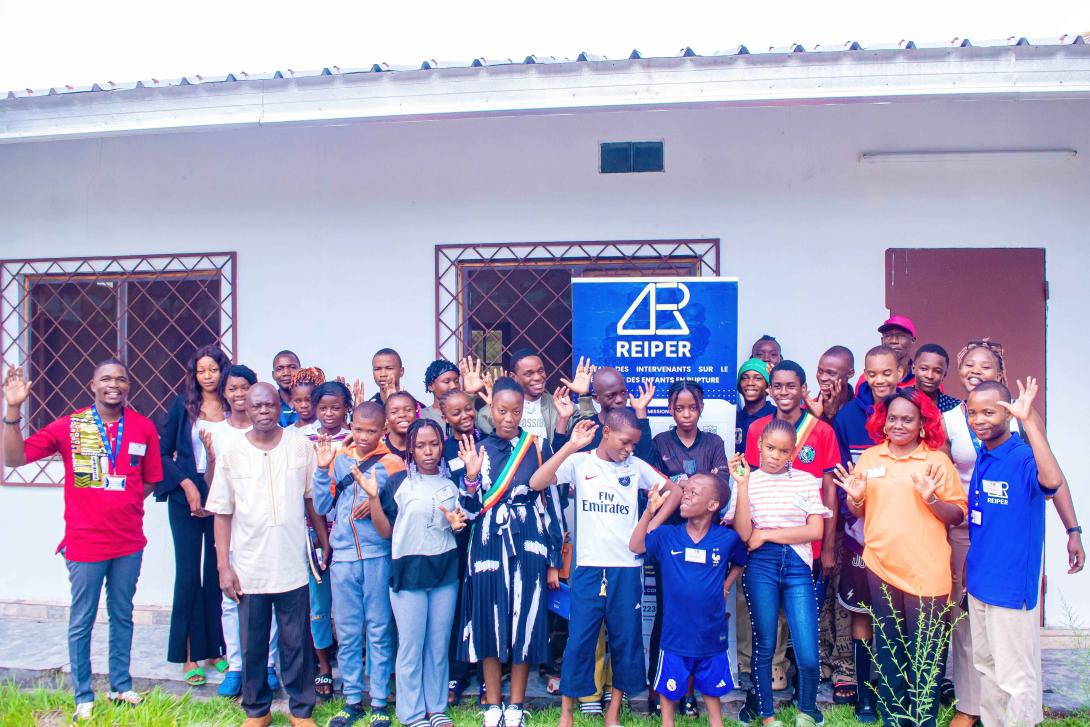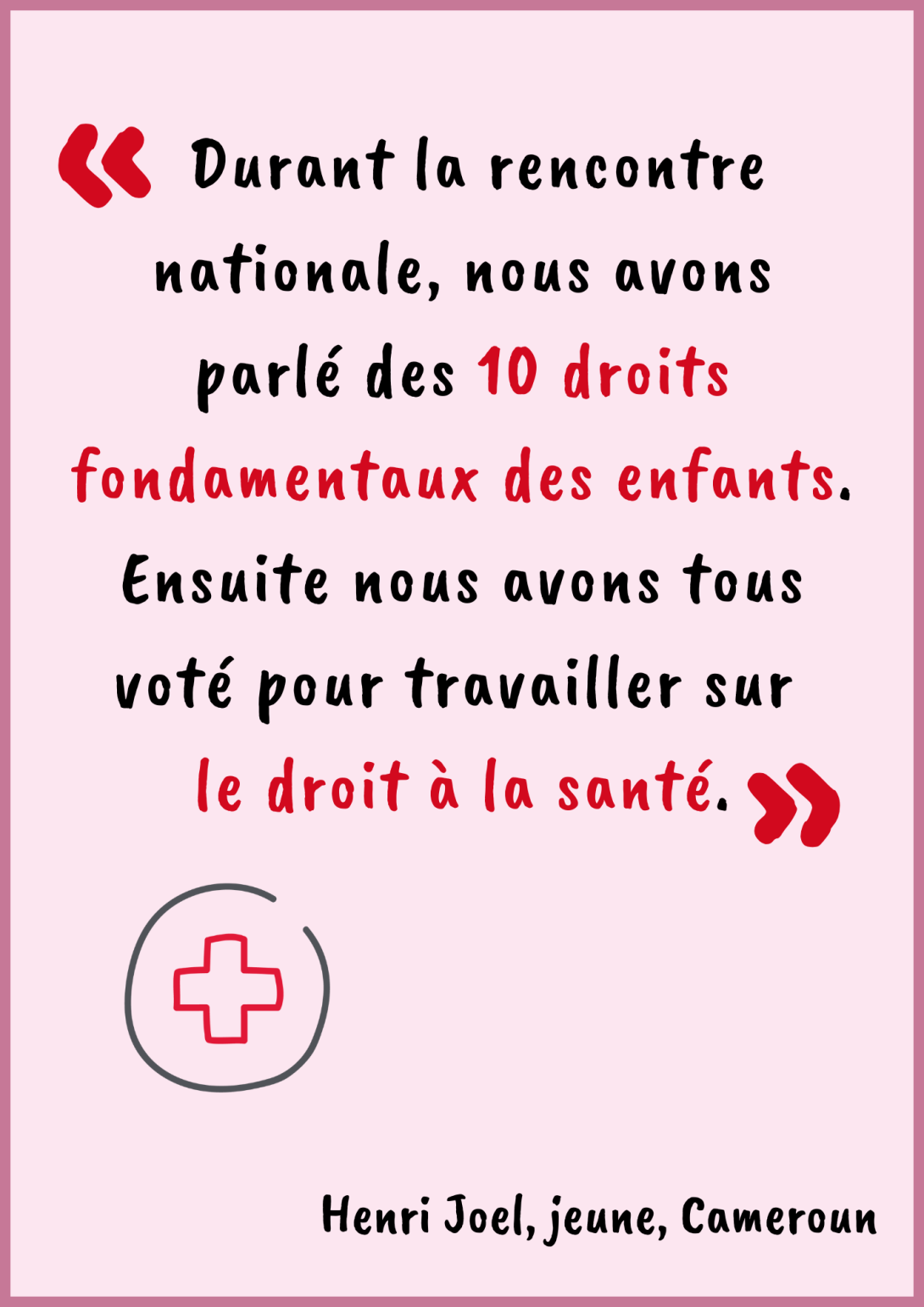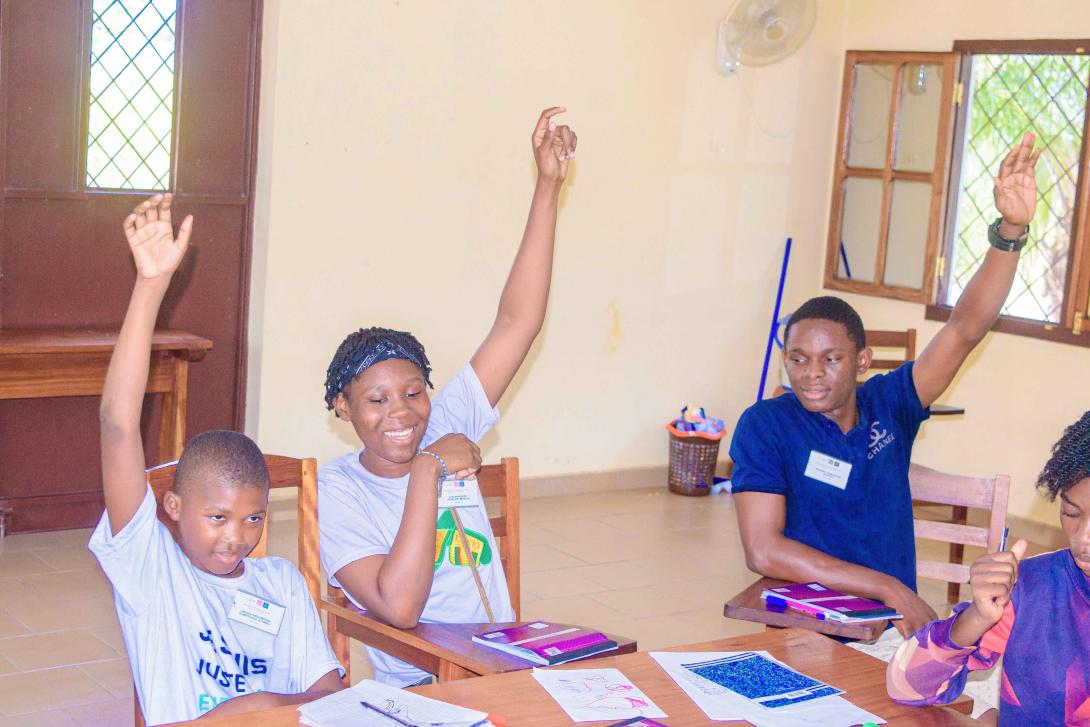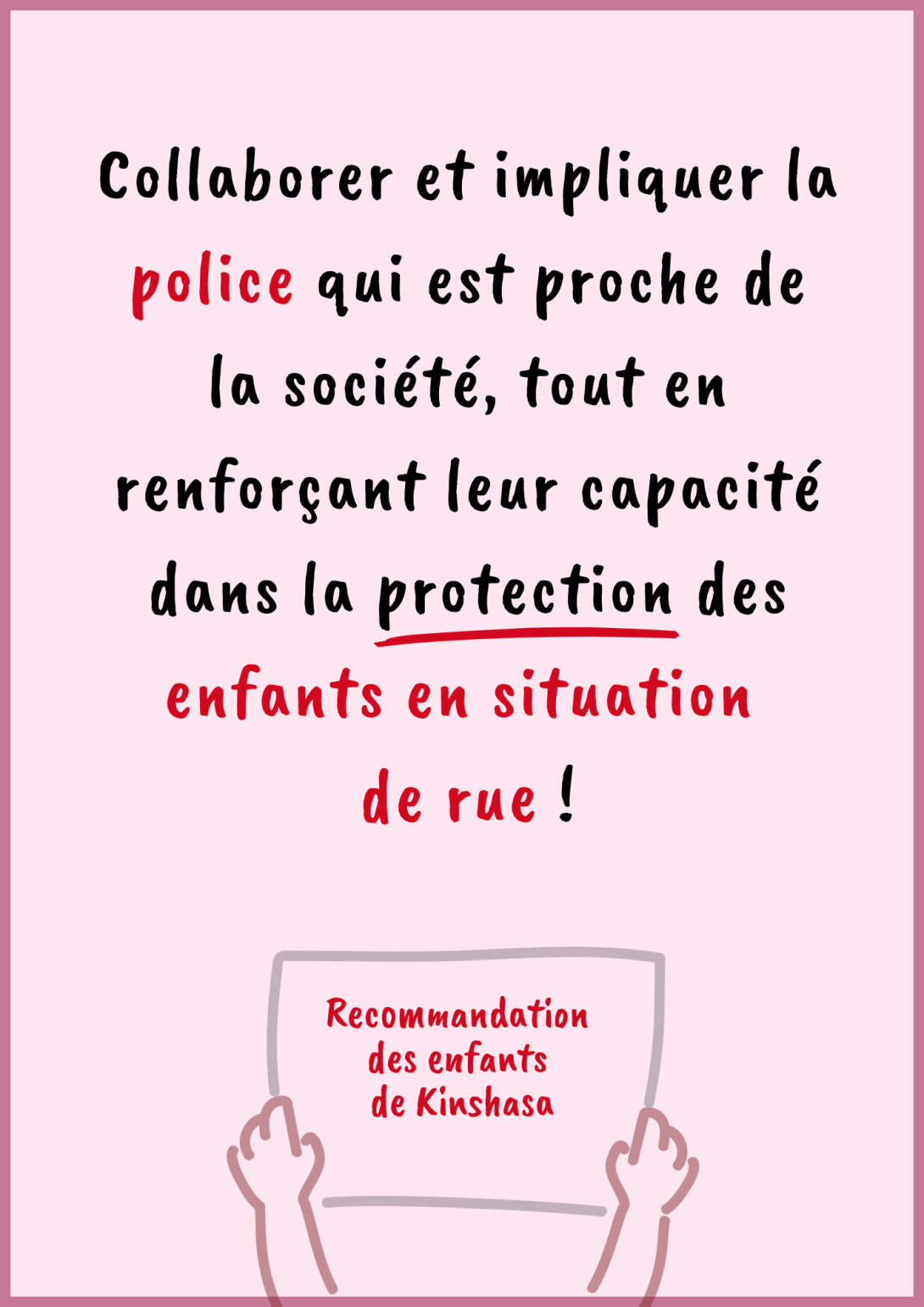

This year, three national youth gatherings were organised in Cameroon, Congo and the Democratic Republic of Congo as part of our regional programme in Central Africa. In each country, these gatherings brought together young people from different localities for a few days so that they could learn more about their rights, exchange ideas and propose concrete solutions to the difficulties they face in their daily lives. Each gathering concluded with the election of four young delegates per country, to represent their peers at the international youth meeting in Brazzaville, in order to carry their messages across borders.
Let's take a closer look at the initiatives led by our partners and the young participants in the national gatherings.
Cameroon: the right to health

In Kribi, 40 children supported by our partners, the Chaîne des foyers Saint-Nicodème in Douala and the Foyers de l’Espérance in Yaoundé, took part in a four-day national meeting. In a participatory setting, the young people themselves chose the themes and forms of expression, such as theatre, singing or drawing, to illustrate their experiences and bring their messages and hopes to life.
The young people of Cameroon worked on the ten fundamental rights of the child and chose to focus on the right to health, which was collectively voted as a priority. This was a powerful choice, fuelled by the realities observed during preparatory discussions with street children:
“Before going to the national meeting, we walked the streets of Douala and talked to children in street situations. One of them said that when he is sick, his friends chip in to pay for his treatment. These children cannot wash themselves; you can see their swollen feet.” said Henri Joel, youth from Douala.
The testimonies highlighted the harsh daily lives of children in street situations, marked by violence, lack of schooling and absence of guidance, but also by incredible resilience. Many emphasised the decisive role of shelters in their recovery, reminding us of the importance and urgency of acting for children in street situations.
Republic of the Congo: the right to freedom of thought and expression

In Djiri, on the outskirts of Brazzaville, around twenty young people gathered for a three-day national meeting organised by our partner, REIPER. Through discussions and workshops, they chose to focus their reflections on freedom of thought and expression, a right they consider essential for making their voices heard, denouncing injustices and sharing their ideas. Their collective work culminated in a message to the authorities:
"Children have the right to express themselves, to reflect and to have their decisions taken into account. If our voices were heard, perhaps our rights could be respected, because without expressing ourselves, we cannot make ourselves heard.." - The children of Congo, 2025
This meeting was also an opportunity for learning and empowerment. The young participants gained experience in group work, developed their advocacy skills and became aware of the power of their words when spoken collectively. Finally, the presence of local authorities reinforced the impact of their commitments and gave additional scope to their approach.
Democratic Republic of Congo: preventing and combating the stigmatisation of children in street situations

In Kinshasa, 24 young people gathered for a national meeting of children in street situations. Organised by our six local partners (AED, JOS, CCN, ORPER, OSEPER, VTA), the aim was to enable children in street situations to express themselves about the stigmatisation they suffer and to think collectively about ways to deal with it and change society's perception.
During interactive workshops, the young people explored children's rights and different forms of stigmatisation and shared their personal experiences. They made several recommendations, including organising awareness campaigns, inviting former children in street situations to talk about their experiences and involving street leaders to strengthen protection and support for children.
The meeting concluded with a presentation of the young people's achievements to representatives of local organisations, authorities and educators.
